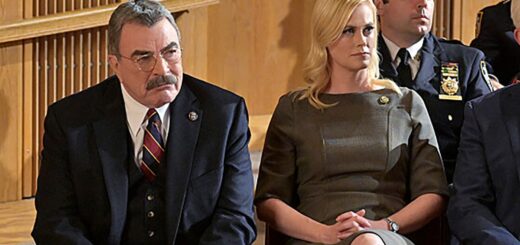“Why Being Network TV’s 4th Most-Watched Drama Wasn’t Enough for CBS to Renew Blue Bloods”
CBS had its reasons for canceling Blue Bloods, even though the Tom Selleck-led cop and family drama was one of the network’s highest-rated shows. Despite being one of CBS’ most popular series in its final season, the network stuck to its decision to end the series, airing its final episode on December 13, 2024. CBS plans to replace Blue Bloods with SWAT, a show that has received multiple reprieves from cancellation despite lower ratings. This decision has been particularly frustrating for Blue Bloods fans, especially since both the cast and the show’s audience strongly opposed the cancellation. Donnie Wahlberg and Tom Selleck, among others, expressed their hope that CBS would reconsider, making the cancellation feel even more painful for devoted fans. While CBS may have had its reasons, understanding them does little to ease the disappointment of fans who fought to save the show.
The Ratings: Blue Bloods vs. SWAT
In its final season, Blue Bloods remained a ratings powerhouse. The show was the sixth-highest-rated series on network television and the fourth-highest-rated on CBS, attracting an impressive average of 7.9 million viewers per episode. These numbers are especially notable given the show’s Friday night 10 PM time slot, traditionally a difficult window for viewership. The final episodes of Blue Bloods drew even larger audiences, with the series finale attracting 11 million viewers.
In contrast, SWAT averaged only 5.6 million viewers per episode, placing it much lower in the ratings—16th on CBS. This stark contrast in viewership raises questions about CBS’s decision to replace a popular show with a series that attracts significantly fewer viewers. It seems like an attempt to boost SWAT’s ratings by giving it Blue Bloods‘ coveted timeslot, but that outcome is far from guaranteed. For many fans, the decision to cancel Blue Bloods while SWAT received multiple renewals despite lower ratings feels deeply unfair.
The Financial Reason Behind the Cancellation
Ultimately, the strong ratings weren’t enough to save Blue Bloods. CBS had already made the decision that Season 14 would be the show’s final chapter, even though the cast and crew had to take a 25% pay cut in order to get the show renewed for that season. This financial concession from the cast—demonstrating their commitment to both the series and its fans—highlights the core reason behind Blue Bloods’ cancellation: cost.
The show’s budget was high, driven in part by the long-tenured cast, which included high-salary actors like Tom Selleck. The series also filmed in New York City, which is more expensive than shooting in Los Angeles. CBS, weighing these costs against the show’s ratings, decided that it could no longer justify continuing production at such a high price tag.
Why the Backlash Is So Intense
The backlash to Blue Bloods‘ cancellation is understandable, especially considering its strong fanbase and high ratings. Blue Bloods stood out from other procedural dramas by incorporating the close-knit Reagan family dynamic, which resonated deeply with viewers. It also depicted the NYPD in a respectful light, gaining the support of real-life police officers. As a result, many fans feel that CBS is dismissing their loyalty, especially since Blue Bloods was far more successful than many other shows the network chose to renew.
The high ratings only amplify the sense of injustice surrounding the cancellation. Typically, fans accept that shows get canceled when viewership declines. However, Blue Bloods was performing well, leading many to believe that CBS was prioritizing factors beyond ratings—like financial considerations or an unexplained shift in strategy—over fan loyalty and viewer preference.
Another reason for the outrage is the cast’s public support for continuing the series. Many of the actors, who had been with the show since its inception, were clearly passionate about the project and hopeful until the very end that CBS might reverse its decision. Fans likely would have been more accepting of the cancellation if it had come after the cast felt the show had reached its natural conclusion. Instead, the abrupt end without closure, and the sense that the decision was driven more by finances than creative factors, has left many feeling betrayed.
In summary, while CBS’ financial reasoning behind canceling Blue Bloods is clear, it has done little to placate the passionate fanbase who watched the show through its entire run. The show’s high ratings, beloved cast, and unique family-focused narrative all made Blue Bloods a standout on CBS, and its cancellation remains a controversial decision that fans are unlikely to forgive anytime soon.


